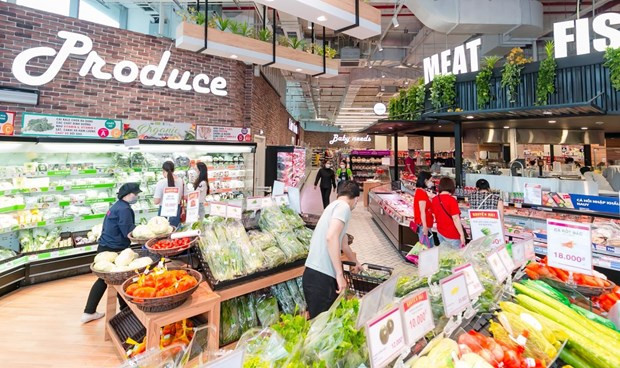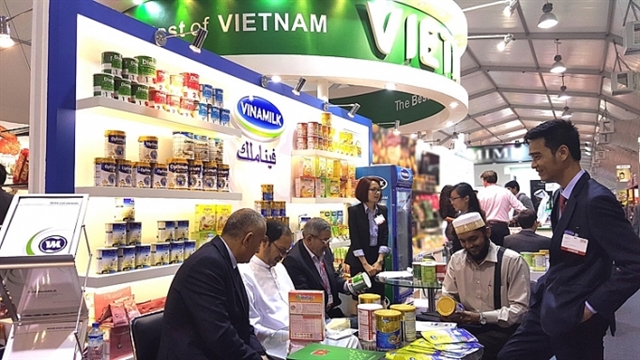
In the wake of extreme weather events and geopolitical conflicts affecting the global supply chain, international buyers are turning their attention to Vietnam as a potential solution to supplement the shortage of products. With competitive advantages in various industries, Vietnamese businesses are being urged to enhance their quality, design, and sustainability efforts to better connect with the global supply chain.
The recent Vietnam International Sourcing 2024 event, held from June 6 to 8 at the Saigon Exhibition and Convention Center in Ho Chi Minh City, saw a significant turnout of international and domestic buyers seeking to explore Vietnamese goods and establish connections for trade.
This event, organized by the Ho Chi Minh City Trade and Investment Promotion Center in collaboration with the Ministry of Industry and Trade, attracted major importers and distributors from around the world, including corporations such as Aeon, Uniqlo, Walmart, Amazon, Carrefour, and many others.
Herman Xu, General Director of Miniso Group (China), highlighted the advantages of Vietnamese products, citing factors such as preferential tariffs due to Vietnam’s membership in numerous trade agreements, strategic geographical location, and competitive labor costs.
Xu emphasized Vietnam’s strengths in trade with North American, ASEAN, and CPTPP markets, enabling businesses to effectively respond to market demands and integrate into global supply chains.

Aly Ansari, General Director of Walmart Vietnam, expressed Walmart’s keen interest in expanding its sourcing from Vietnam across various product categories such as garments, electronics, hardware, and food. Walmart sees significant potential in Vietnamese products and aims to enhance collaboration on a larger scale.
Despite these opportunities, Vietnamese businesses are facing challenges related to meeting stringent environmental and sustainability standards imposed by key export markets. The “green barriers” posed by these standards require enterprises to adopt greener practices and comply with stringent regulations on sustainability, traceability, and environmental impact.
Phan Thi Thang, Deputy Minister of Industry and Trade, emphasized Vietnam’s transformation into a major global manufacturing center capable of supplying a diverse range of competitive products with improved quality.
Following recent geopolitical-economic instability, Vietnam has emerged as a strategic location in the global supply chains of many corporations and distribution channels.
According to Ta Hoang Linh, Director of the European – American Market Department at the Ministry of Industry and Trade, the textile, garment, furniture, and household appliances industries have shown positive export growth in response to recovering demand in key export markets.
However, these industries face increasing pressure to meet new and more demanding standards set by major markets such as the US, EU, Northeast Asia, and CPTPP countries.
Linh stressed the inevitability of green transformation and the adoption of circular economy models to meet market requirements and revitalize growth in these industries. He highlighted the need for businesses to prioritize green production practices to align with evolving international standards.
Tran Nhu Tung, Vice President of the Vietnam Textile and Apparel Association (VITAS), acknowledged the pressure on textile and garment enterprises to embrace green practices in response to the requirements set by international brands.
Tung emphasized that greening production is a mandatory path for businesses to secure future orders and opportunities.
The call for greener production practices is resonating with international buyers who emphasize the need for Vietnamese enterprises to accelerate their efforts to align with sustainability criteria and circular production standards.
By embracing green transformation and sustainable development, Vietnamese businesses can position themselves to seamlessly integrate into the international supply chain.
As Vietnam continues to attract attention as a reliable source of goods for international buyers seeking to diversify their supply chains, the imperative for Vietnamese businesses to prioritize sustainability and quality becomes increasingly evident. With concerted efforts to enhance product quality, design innovation, and sustainability practices, Vietnam is poised to play an even more significant role in the global supply chain landscape.





